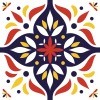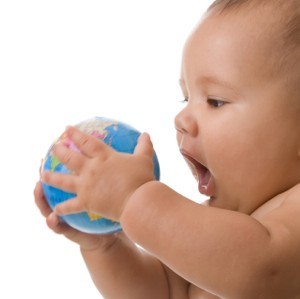
When I was a mother to be, there was not a whole lot of choices out there for anything that was green. We had glass bottles and cloth diapers which are two big green choices but most mothers readily jumped on the Pampers bandwagon because they were easy and convenient. Back then, we did not think about what was happening to those diapers when they left our babies bottoms.
Breastfeeding is best. It's free, has health benefits for mother and baby, has no environmental impact, and is a precious bonding experience. Although there are breast pads on the market, many of these are not enviro-friendly either so ditch disposables and try re-usable organic cotton or wool felt pads. For a more natural nipple cream, why not try some locally produced olive oil or organic lanolin. Both do a great job. If bottle feeding becomes a necessity, pumping your own is the first choice. Beyond that, using a fair-trade organic infant formula is preferable.
Mothers today have so many options. Cloth diapers are making a big comeback. There are patterns on the internet for making your own so that you can use earth friendly materials. A new Mom friend of mine even makes hers out of her husband's old flannel shirts. So if you can sew, you can make your own with Velcro closures or snaps that are pretty easy to use. You can use a diaper service. One study has found that home-washing cloth diapers has only 53 percent of the ecological footprint of disposables, and if you use a diaper laundering service, that impact is halved again. These are not your grandmother's diapers either.
There are many natural and organic baby foods are the market now days. Even Gerber has changed their formulas to make their food more natural and nutritious. Please make sure that the packaging you choose is biodegradable and earth friendly. At about six months, babies start to eat real food. Combinations of fish, meat, eggs, legumes, and vegetables can be made at home just like the food you would feed your self. Buying jars of food is sure convenient, but as an adult you don't live out of jars, so why should your baby?
Choosing organic hemp or cotton, bamboo or wool fabrics made without toxic chemicals are best against a baby's sensitive skin and last longer with the constant washing. Washing your baby clothes also needs to be done in a biodegradable washing soap. Most of these are made with natural and non-irritating ingredients. If you plan on crocheting or knitting any of your babies clothing look for all natural yarns.
The best baby lotion is plain old olive oil; cheap, natural, and un-perfumed. Natural organic corn starch can be used as a baby powder or use an old Indian trick and brown some flour in a cast iron skillet until lightly browned. They used this for diaper rash and chafing. There are organic baby shampoos that can be bought at a lot of main stream stores or can be picked up at your local health food store. Baby Wipes can be made of two squares of fabric sewn or crocheted together or using natural cotton thread you can crochet some squares to use. Once you have these made you will never go back to the disposables. These can be washed right in your washer along with your diapers or you may even be able to send them out to the diaper service.
How to use homemade baby wipes. Since you don't want to carry around a box like with disposable wet wipes as your homemade ones could get moldy, you will need to make a wetting solution to carry around in your diaper bag. When it's time to change a diaper, grab your spray bottle of wetting solution and spray the wipe until moist (you can also spray baby's bottom if necessary). Your solution can simply be water to wet your wipes, but for easier cleaning, try out one of the following recipes for wipes solution. Small plastic spray bottles can be found at most dollar stores.
Shake well before each use.
Get back to basics and try old fashioned wooden toys and organic cotton or homemade teddies. Babies tend to put most things in their mouths so you will want to stay with toys that are made from natural materials as much as possible. When baby is a little older, get hold of second-hand toys. If you truly need to buy new toys, try to find the products just coming out from the toy companies that are made with BPA free plastics. Also aim for toys that helps build a child's bond with nature and the natural world.

About The Author: Debra Frick is a mother of 5 and a grandmother to 8 grandsons and one granddaughter. She is a published author and poetress. Recycling and saving money are her passions. She also loves crocheting and cooking. She is also a pet rescue volunteer and has many pets of her own.
Add your voice! Click below to comment. ThriftyFun is powered by your wisdom!
Great article! You can also add a drop or two of tea tree oil for a nice smell and it will cut down on the mold, as will boiling the water first.
Another thought: cloth diapers help them potty train faster because it does not take them long to associate a wet feel to what they just did.
Hey, I'm with you! I don't know of any other way to do it. Organic gardening? I guess they just put a name on it, been doing it all my life. Raise 2 kids on what they now call green. It's to bad that people are just now getting it. I try so hard to try and tell people how to do it. I guess it is just to much effort for them. Sad. But I don't give up. I have been living "green" since the 70's. I guess us old hippies knew what we were talking about. Keep up the good work. I'm with you.
Add your voice! Click below to comment. ThriftyFun is powered by your wisdom!